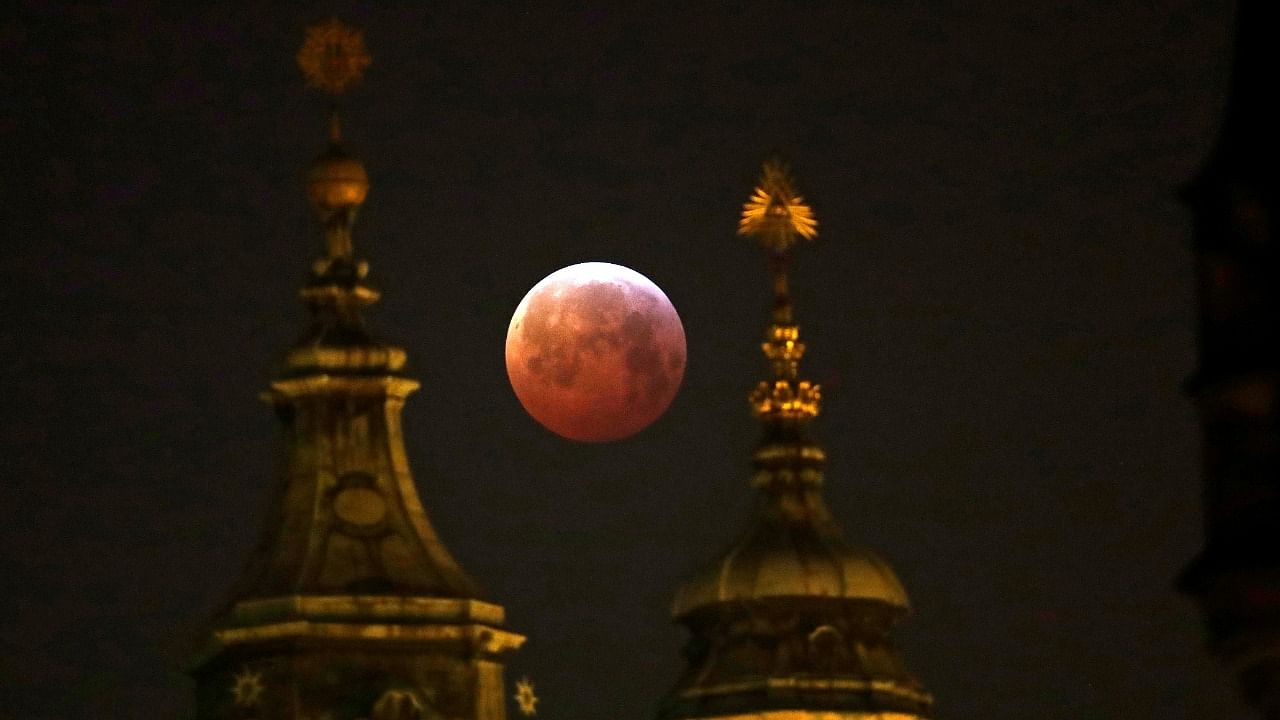
The full moon on Wednesday will be the year's biggest "supermoon" and feature the first total lunar eclipse in more than two years.
During the eclipse, the full moon will pass through the Earth's shadow. It appears red, known as a "blood moon", as light is scattered through the Earth's atmosphere, much like during a sunset. In addition, the moon will be at perigee, or the closest point to Earth in its orbit, making it appear about 7 per cent larger than normal and 15 per cent brighter or a "super moon," according to astronomers. May's full moon is known as the "Flower Moon" since it occurs when spring flowers are in bloom.
The result when taken together is a "Super Flower Blood Moon."
The eclipse will happen in the early morning hours on Wednesday in western North America, with people in Alaska and Hawaii getting the best views. It can also be seen in southern Chile and Argentina. Skygazers in all of Australia and New Zealand and parts of Southeast Asia can see the eclipse on Wednesday evening.
For stargazers in parts of the world where the event is not visible or obscured by clouds, some observatories will webcast the eclipse.
The Griffith Observatory in Los Angeles will stream live views beginning at 1:45 am PT (1415 IST). The Lowell Observatory in Flagstaff, Arizona, will start its broadcast at 2:30 am PT (1500 IST). The Astronomical Society of South Australia will also broadcast live on Facebook and YouTube starting at 7 pm ACST (1500 IST).
The peak viewing time for the eclipse will be between 4:11 am and 4:26 am PT on the US West Coast or 9:11 pm to 9:26 pm AEST in Australia (1641 GMT to 1656 IST), according to the observatories.
The next total lunar eclipse will be May 15-16, 2022.
Deccan Herald is on WhatsApp Channels| Join now for Breaking News & Editor's Picks